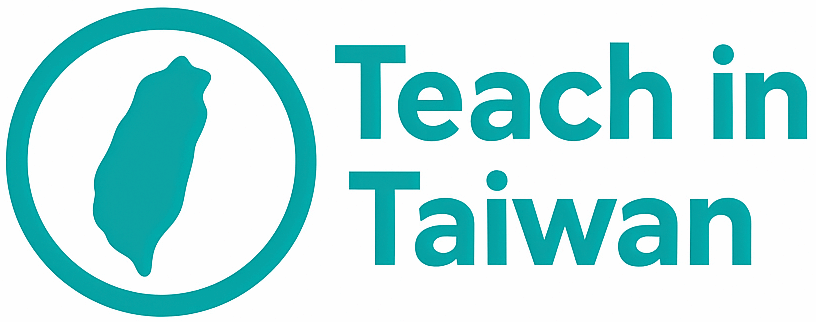Taiwan offers English teachers competitive salaries that provide comfortable living and strong savings potential in one of Asia’s most welcoming destinations. The island nation combines modern amenities with rich cultural experiences, making it an attractive choice for educators seeking both professional growth and adventure abroad.
English teachers in Taiwan typically earn between NT$50,000 to NT$80,000 per month (approximately $1,600 to $2,600 USD), with experienced teachers at international schools earning up to NT$140,000 monthly. These salaries stretch significantly further than similar amounts would in Western countries, thanks to Taiwan’s reasonable cost of living and excellent public services.
The earning potential varies considerably based on the type of teaching position, qualifications, and location within Taiwan. Teachers can supplement their income through private tutoring, which pays NT$700 to NT$1,200 per hour, while also enjoying benefits like national health insurance and a stable visa system that makes long-term living feasible.
Average English Teacher Salary in Taiwan in 2025
English teachers in Taiwan can expect to earn between NT$40,000 to NT$200,000 per month depending on their school type, with public schools and international institutions offering the highest compensation. Salaries vary significantly between major cities like Taipei and smaller regional areas, affecting overall earning potential and living costs.
Monthly Salary Ranges by School Type
Public schools offer the most stable compensation for teaching English in Taiwan, with salaries ranging from NT$60,000 to NT$70,000 per month ($1,870 to $2,180 USD). These positions include government-regulated contracts and comprehensive benefits packages.
International schools provide the highest earning potential, with monthly salaries between NT$80,000 to NT$200,000 ($2,500 to $6,240 USD). These positions require teaching licenses and previous classroom experience but offer premium benefits including housing allowances and airfare reimbursement.
Private schools typically pay NT$50,000 to NT$60,000 per month ($1,560 to $1,870 USD). While slightly lower than public school salaries, they often feature smaller class sizes and more flexible teaching environments.
Buxiban (cram schools) show the widest salary variation, ranging from NT$40,000 to NT$70,000 monthly ($1,250 to $2,180 USD). Pay depends heavily on teaching hours and school quality, as most positions are hourly-based.
University positions average around NT$55,000 per month ($1,720 USD) with fewer teaching hours but require advanced degrees.
Typical Hourly Rates and Annual Earnings
Hourly rates for teaching English in Taiwan vary significantly based on employment type and location. Regular teaching positions at schools typically don’t operate on hourly systems, but private tutoring offers NT$600 to NT$1,200 per hour ($19 to $38 USD).
Private tutoring provides the highest hourly compensation for qualified teachers. Rates depend on student level, subject specialization, and teacher credentials. Business English and test preparation command premium rates.
Online teaching platforms offer NT$500 to NT$1,000 per hour ($15 to $32 USD). This option allows teachers to supplement their primary school income with flexible scheduling.
Annual earnings for full-time teachers range from approximately NT$480,000 to NT$840,000 ($15,000 to $26,160 USD) for most school positions. International school teachers can earn significantly more, with top-tier positions reaching NT$2,400,000 annually ($74,880 USD).
Teachers who combine school positions with private tutoring often increase their monthly income by NT$10,000 to NT$30,000 ($310 to $935 USD).
Salary Variations by City and Region
Taipei offers the highest concentration of teaching opportunities but also the highest living costs. Salaries may be slightly higher, but rent consumes a larger percentage of income compared to other cities.
Taichung and Kaohsiung provide competitive salaries with significantly lower living expenses. Teachers in these cities often save more money despite potentially lower base salaries than Taipei positions.
Smaller cities and rural areas typically offer lower salaries but dramatically reduced living costs. Housing, food, and transportation expenses are substantially cheaper outside major metropolitan areas.
Regional salary differences are often offset by cost of living variations. Teachers in expensive cities like Taipei may earn NT$5,000 to NT$10,000 more monthly but spend considerably more on housing and daily expenses.
Most teachers find they can save NT$15,000 to NT$30,000 monthly ($470 to $935 USD) regardless of location with proper budgeting. Rural positions may offer lower salaries but enable higher savings rates due to minimal living expenses.
Types of English Teaching Jobs and Salaries
English teachers in Taiwan can choose from several distinct employment options, each offering different salary ranges, working conditions, and requirements. Salaries range from NT$40,000 for entry-level buxiban positions to NT$200,000+ for experienced international school teachers.
Buxiban (Cram Schools): Role and Pay
Buxiban positions serve as the most accessible entry point for new teachers looking to teach English in Taiwan. These after-school academies typically pay NT$40,000-70,000 per month, with hourly rates determining total income.
Teachers work primarily afternoons, evenings, and weekends when students attend after regular school hours. Class sizes vary dramatically from 5 to 30+ students, and ages range from 4-year-olds to teenagers.
Typical Schedule:
- 1 PM to 9 PM working hours
- 20-30 teaching hours per week
- Minimal prep time compensation
The quality and professionalism of buxiban schools varies significantly. Some offer health insurance, performance bonuses, and visa sponsorship, while others provide basic hourly pay only.
Most buxiban positions require minimal qualifications, making them popular with first-time teachers. However, teachers should research schools carefully before accepting positions due to inconsistent working conditions.
Public Schools: Expectations and Compensation
Public school teachers earn NT$60,000-70,000 monthly through programs like the Taiwan Foreign English Teacher Program (TFETP). These positions offer the most stability and comprehensive benefits packages.
Teachers work standard school hours from 8:30 AM to 4:30 PM, Monday through Friday. Actual teaching time averages 15-20 hours weekly, with remaining time spent on lesson planning, meetings, and school events.
Benefits typically include:
- Government-regulated contracts
- Paid holidays and vacation time
- Housing allowances or subsidized rent
- Contract completion bonuses
- Health and labor insurance
- Return flight reimbursement
Public school positions require more extensive documentation and formal interviews. Teachers must remain on campus during school hours and participate in extracurricular activities and school functions.
The structured environment appeals to teachers seeking job security and official support systems.
Private and International Schools Compared
Private schools offer NT$50,000-60,000 monthly with lighter workloads and smaller class sizes averaging 10-20 students. These schools provide more curriculum control and supportive teaching environments.
International schools represent the highest-paying option at NT$80,000-200,000 monthly. These positions require teaching licenses and at least two years of classroom experience.
International school benefits:
- Full health insurance coverage
- Round-trip airfare allowances
- Paid housing or generous housing stipends
- Annual performance bonuses
- Retirement contributions
Private schools focus on English-intensive curricula for local families, while international schools follow American, British, or IB programs for expatriate and local students.
Competition for international school positions remains intense due to premium salaries and comprehensive benefit packages. Most require advanced degrees and proper teaching certifications.
University and College Positions
University teaching positions offer approximately NT$55,000 monthly with exceptional flexibility and minimal classroom hours. Teachers typically conduct 10-16 hours of classes weekly.
These academic roles require Master’s degrees or PhDs, though extensive teaching experience sometimes substitutes for advanced qualifications. Universities prefer candidates with research backgrounds or specialized expertise.
Academic perks include:
- Long winter and summer breaks (unpaid)
- Academic freedom in curriculum design
- Research and conference opportunities
- Supplemental tutoring income potential
Most university positions are secured locally through personal connections rather than overseas recruitment. Teachers enjoy substantial free time but sacrifice higher salaries available at international schools.
The academic calendar provides extended breaks ideal for travel or additional income through private tutoring during semester breaks.
Benefits and Perks Beyond Salary
Teaching English in Taiwan offers substantial benefits that extend well beyond the monthly paycheck. Teachers receive housing stipends, comprehensive health coverage, contract bonuses, and generous vacation time that significantly enhance their overall compensation package.
Housing Stipends and Accommodation
Most public school programs in Taiwan provide housing stipends ranging from NT$5,000 to NT$10,000 per month. This translates to approximately $150-$300 USD monthly to help cover accommodation costs.
Some schools offer on-campus housing or assist teachers in finding suitable apartments near their workplace. Private language schools may provide less housing support, but many still offer guidance in securing affordable rental properties.
Teachers often share apartments with other expat educators to maximize their housing stipend. Popular areas for foreign teachers include districts with good transportation links to schools and downtown areas.
The housing stipend significantly reduces living expenses, allowing teachers to save more of their base salary while maintaining comfortable living standards.
Health Insurance and Bonuses
Taiwan’s National Health Insurance system covers English teachers working in public schools. This comprehensive coverage includes medical visits, hospital stays, and prescription medications at minimal cost.
Teachers receive a contract completion bonus equal to one month’s salary upon finishing their teaching contract. This bonus serves as both an incentive to complete the full term and additional savings for teachers.
Some programs offer performance-based bonuses for teachers who exceed expectations or take on additional responsibilities. Professional development allowances may also be available for teachers pursuing further certifications.
The health insurance system in Taiwan is highly regarded internationally, providing teachers with quality medical care without the high costs typical in other countries.
Paid Time Off and Additional Incentives
English teachers in Taiwan enjoy generous vacation time, including summer and winter breaks that align with the school calendar. Public school teachers typically receive 2-3 weeks off during these periods while maintaining their salary.
Airfare reimbursement is standard for most teaching programs, with schools covering international flight costs to and from Taiwan. The exact reimbursement amount varies by program and contract length.
Teachers also receive national holidays off, including Chinese New Year, which provides extended time for travel within Asia. Some schools offer additional personal leave days beyond standard vacation time.
Professional development opportunities, such as teacher training workshops and conferences, are often funded by employers as part of their commitment to educator growth.
Typical Expenses and Cost of Living in Taiwan
Taiwan offers a relatively low cost of living compared to other Asian teaching destinations, with teachers typically spending $300-400 on housing and $800-1,000 monthly on additional expenses. Most English teachers find their salaries provide comfortable living standards while maintaining strong saving potential.
Average Housing Costs
Housing represents the largest expense for English teachers in Taiwan. Rent typically ranges from $300-400 USD per month for teachers sharing apartments or living in modest accommodations.
Teachers in Taipei face higher housing costs due to the city’s status as the capital. A shared apartment in central Taipei might cost $400 monthly, while similar housing in smaller cities costs closer to $300.
Many teachers choose shared housing arrangements to reduce costs. Private studios or one-bedroom apartments cost significantly more, often reaching $600-800 monthly in major cities.
Housing deposits typically equal 2-3 months’ rent upfront. Teachers should budget for this initial expense when planning their move to Taiwan.
Transportation, Utilities, and Daily Expenses
Taiwan’s efficient public transportation system keeps travel costs low. Monthly transportation passes cost approximately $30-50 USD and cover buses, trains, and metro systems in major cities.
Utility bills including electricity, water, and internet average $50-80 monthly. Air conditioning usage during Taiwan’s hot summers can increase electricity costs significantly.
Food expenses vary based on dining preferences. Local street food and restaurants offer meals for $2-5, while Western dining costs $10-15 per meal. Most teachers spend $300-500 monthly on food.
Cell phone plans cost $15-25 monthly for unlimited data. Entertainment, clothing, and miscellaneous expenses add another $200-400 to monthly budgets.
Saving Potential for Teachers
English teachers in Taiwan demonstrate strong saving potential despite modest salaries. Teachers typically save $700-1,800 monthly depending on lifestyle choices and additional income sources.
Teachers earning $2,200 monthly often save $800-900 after covering basic expenses. More frugal teachers or those earning higher salaries through private tutoring save $1,300-1,800 monthly.
Private tutoring provides additional income at $20-25 per hour. Teachers working extra tutoring hours significantly boost their saving potential beyond base salaries.
Three-year teaching commitments can result in $40,000-65,000 in total savings. Many teachers use these savings to pay off student loans, fund extended travel, or make major purchases upon returning home.
Living the Experience: Real Earnings and Lifestyle Insights
Teaching English in Taiwan offers diverse earning potential from $2,000-$3,000 monthly, with real teachers saving $700-$1,800 per month. The experience varies significantly based on work hours, lifestyle choices, and financial goals.
Case Studies from Current Teachers
A high school English teacher in Taipei earned $2,200 monthly working 25 hours per week. She spent $300 on rent and $1,000 on entertainment, travel, and bills. This allowed her to save $800-$900 monthly while exploring Asia extensively.
Her colleague earned the same base salary but focused on aggressive saving. She added private tutoring at $20-$25 per hour to boost income. Her disciplined approach resulted in $1,300 monthly savings.
A Canadian teacher maximized earnings by working 40 hours weekly across multiple schools. She earned $3,000 monthly with higher rent costs of $400. Despite spending $800 on lifestyle expenses, she saved $1,800 per month.
After three years, this teacher accumulated $65,000 for a condo down payment in Toronto. Her strategic approach to teaching English abroad proved highly effective for long-term financial goals.
Balancing Work, Travel, and Savings
Teachers typically work 20-25 hours weekly with 5-10 hours of lesson preparation. This schedule leaves ample time for regional travel and cultural exploration.
Budget allocation varies widely among teachers. Conservative spenders save 60-70% of their salary, while travel-focused teachers save 35-40% monthly.
Weekend trips to Japan, Thailand, and South Korea remain affordable on teacher salaries. Many teachers use holiday periods for extended Southeast Asian adventures.
Private tutoring offers flexible income boosts without long-term commitments. Teachers can adjust their tutoring hours based on travel plans or savings goals.
Lifestyle Tips for Newcomers
Housing costs range from $300-$400 monthly for shared apartments. Location significantly impacts both salary potential and living expenses in Taiwan’s major cities.
New teachers should budget $800-$1,000 monthly for food, transportation, and entertainment. Local markets and street food keep dining costs reasonable.
Building a private tutoring network takes 2-3 months but provides valuable income supplementation. Word-of-mouth referrals prove most effective for finding quality students.
Taiwan’s efficient public transportation system reduces commuting costs significantly. Many teachers rely entirely on buses and trains without owning vehicles.


